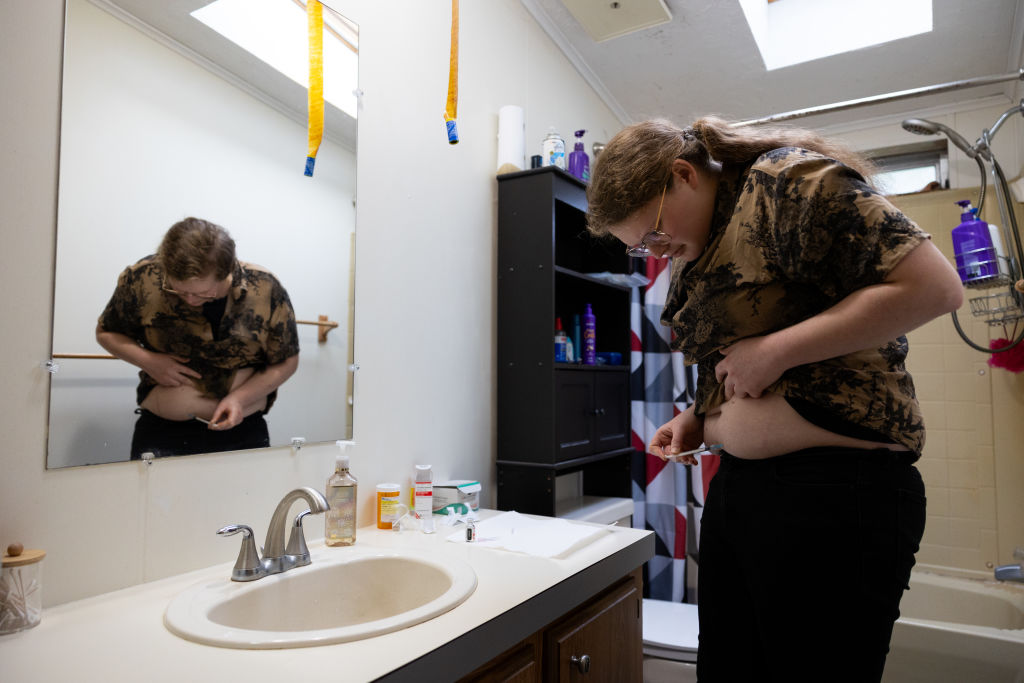
Listening to happy tunes helped study participants with motion sickness get over their predisposition and recover better, according to new research.
Motion sickness is a common condition that happens when you’re moving while sitting still, such as riding in a car. It occurs when our eyes, inner ear and body send conflicting messages to the brain, resulting in nausea, headaches, or breaking out in a cold sweat.
Now, Chinese scientists studying ways for improving the condition have published a study in the journal Frontiers in Human Neuroscience showing that playing different types of music may help people recover more effectively.
Using a specially calibrated driving simulator, they induced car sickness in participants and then played different types of music while they tried to recover. Soft and joyful music produced the best recovery effects, while sad tunes were even less effective than doing nothing at all.
“Motion sickness significantly impairs the travel experience for many individuals, and existing pharmacological interventions often carry side-effects such as drowsiness,” said study author Dr. Qizong Yue of Southwest University in China.
“Music represents a non-invasive, low-cost, and personalized intervention strategy.”
The researchers explained that feeling tense in anticipation of possible car sickness can trigger a physical reaction, bringing sickness on more quickly. Because music can be used to alleviate tension, Dr Yue and his team wondered if it could help people who get carsick.
The team began by developing a model to induce motion sickness. They recruited 40 participants to screen routes on a driving simulator and chose the most effective route for making people feel carsick.
30 people who reported moderate levels of previous carsickness then wore electroencephalogram (EEG) caps, to try to identify quantifiable signals of carsickness in the brain’s activity.
RELATED SCIENCE: Just 1-Minute Daily Exposure to Specific Sound Frequency Can Alleviate Motion Sickness: New Study
They were divided into six groups – four that received a music intervention, one that received no music, and one whose simulators were stopped when they started to report that they might feel slightly carsick.
The last group acted as a comparative sample for the EEG data. They had received the same stimuli as the other 25 participants, but weren’t allowed to become nauseous, so the difference between their brain activity and the other participants’ would help identify signals characteristic of carsickness.
To begin with, the participants sat still in the simulator for a few minutes to capture EEG signals from their brains. Then they performed a driving task and reported their level of carsickness to the research team. Once they stopped driving, the participants in the music groups were played tunes for 60 seconds, and then asked to report how sick they felt.
Joyful music alleviated carsickness by 57%
The scientists found that joyful music alleviated carsickness the most, reducing it by 57.3%—followed very closely by soft music, at 56.7%.
Passionate music reduced motion sickness by 48.3%, while playing sad music turned out to be slightly worse than doing nothing.
The control group reported a reduction of carsickness symptoms by 43.3% after their rest, while those who listened to sad music reported a reduction of just 40%.
HOLISTIC SOLUTION TO MOTION SICKNESS: Woman Makes Drug-free Patches That Treat Nausea, Cramps, Vertigo, Hangovers – And Even Car Sick Pets
The EEG data showed that participants’ brain activity in the occipital lobe changed when they reported carsickness, measureing less complex activity in this brain region when participants said they felt quite sick.
The better the said they felt as they recovered, the more the activity measured by the EEG returned to normal levels.
Joyful or soft music?
The researchers believe it’s possible that soft music relaxes people, relieving the tension that exacerbates carsickness, while joyful music might distract people by activating brain reward systems.
But sad music could have the opposite effect, by amplifying negative emotions and increasing overall discomfort.
KINDNESS IN THE END: Caring Ambulance Workers Take Detour to Grant Dying Man’s Simple Ice Cream Wish
The researchers say further work with a larger sample size is needed to confirm the results. They plan to follow up the experiments with investigations of different forms of travel-sickness and the role played by personal musical taste.
“Based on our conclusions, individuals experiencing motion sickness symptoms during travel can listen to cheerful or gentle music to achieve relief,” said Dr. Yue, who believes the findings of this study would “likely extend to motion sickness experienced during air or sea travel,” as well.
SHARE THIS GOOD NEWS TIP With Families Who Have Carsick Kids…

